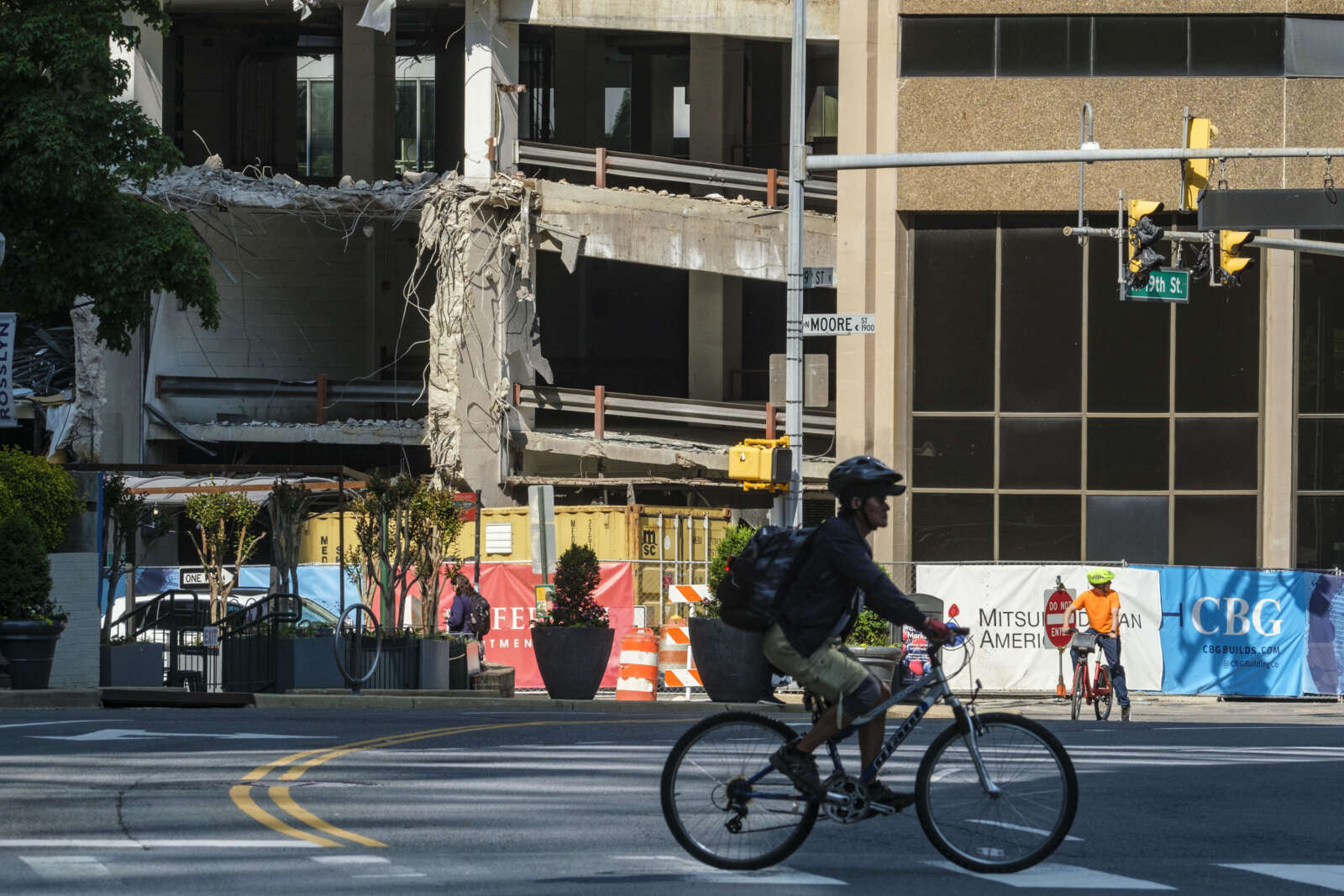
The Arlington County Board will consider accepting a $7.1 million grant to encourage people to plan more trips without their cars.
Nearly $5.7 million of the Congestion Mitigation Air Quality Program grant comes from federal funding, with $1.4 million coming from the state. Arlington County is not required to match funding.
“Funds will be used to provide educational and promotional support to… efforts to help facilitate and market alternative commute options such as transit, biking, walking and shared ride options,” per a county report.
The grant would fund efforts by Arlington County Commuter Services to encourage private-sector employers to provide commuter benefits to employees who commute using transit or vanpools. This county agency was formed to reduce traffic congestion, decreasing parking demand and promote driving alternatives.
The funding would also pay for events designed to promote the use of alternative travel modes, such as carpool and vanpool. Lastly, it would help employers, commercial property owners, schools and individuals provide information on telework, parking management strategies and alternative transportation benefit programs.
The cash infusion emphasizing commuting alternatives comes as, regionally, more people are working from the office at least part-time and more people are driving alone.
This year, the remote work rate in the D.C. region dropped to 25% from a high of 33% in 2021, Axios reports.
Meanwhile, the region ended 2022 with 78% of commuters driving alone, a 14% increase from 2019, according to the National Capital Region Transportation Planning Board of the Metropolitan Council of Governments
Despite the uptick in single-occupant trips, Metro ridership continues recovering from a pandemic-induced hit. Revenue, however, has not seen the same growth, compounding the budget shortfall WMATA faces, which could trigger significant service cuts.
Locally, Arlington Transit (ART) ridership saw a 50% Covid-era drop, though it was insulated from deeper declines because many essential workers continued taking the bus during the pandemic. Going into 2020, ridership had already been declining, however.
Last year, Arlington County contributed to a regional effort, backed by state funds, to launch a campaign to generate interest in taking transit.
In another bid to encourage ridership, county staff intend to apply for $400,000 in regional transportation funding to increase bus frequency on ART Route 75.
Currently, two buses per hour travel between the Shirlington Transit Center and the Ballston and Virginia Square Metro stations. The grant application, if endorsed this weekend by the County Board and later approved by the Northern Virginia Transportation Commission, would bring that to three buses per hour.

